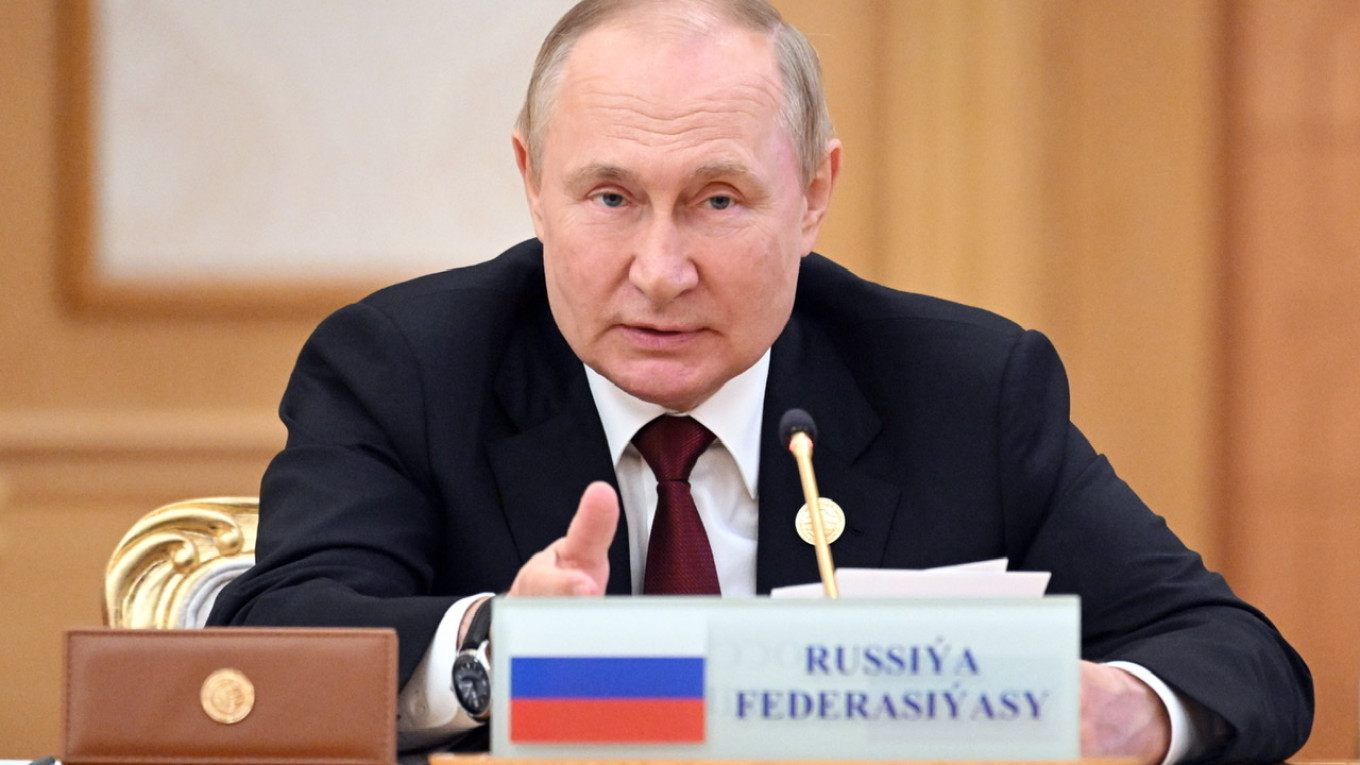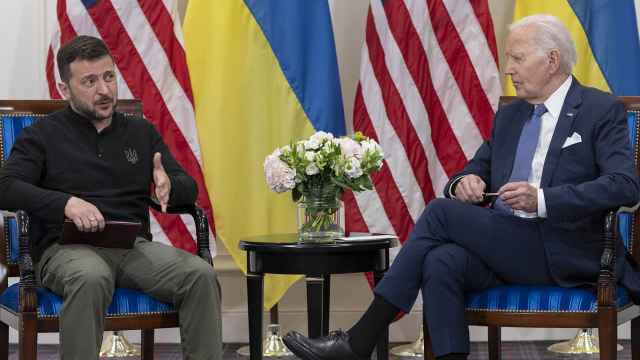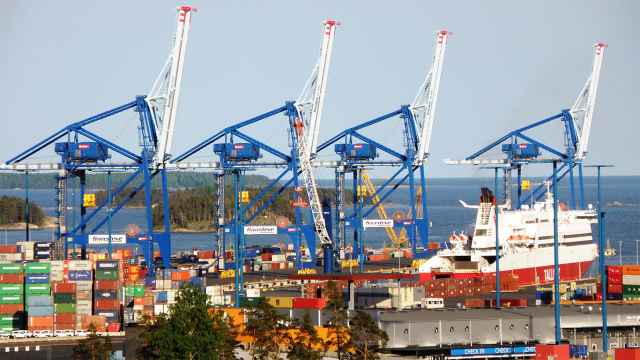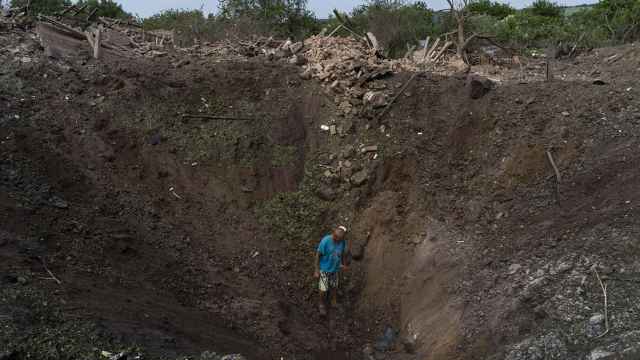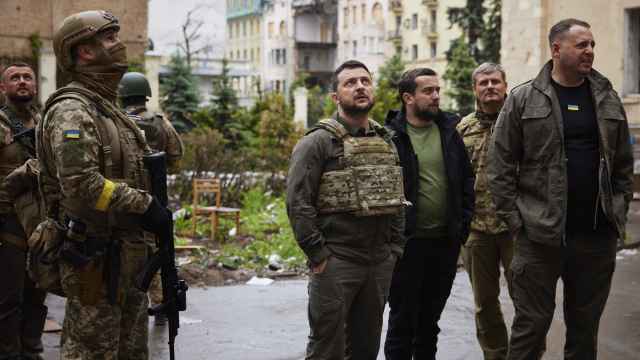The United States vowed Wednesday to reinforce Europe's defenses in the wake of Russia's invasion of Ukraine, as NATO declared Moscow the West's greatest threat — prompting Vladimir Putin to lash out at the alliance's "imperial ambitions."
Meeting in Madrid, NATO leaders said Russia "is the most significant and direct threat to allies' security and to peace and stability in the Euro-Atlantic area."
This came as NATO welcomed Sweden and Finland as invitees to join the alliance, and US President Joe Biden announced new deployments of US troops, ships and planes.
Biden boasted that the US move was exactly what Putin "didn't want" — and Moscow, facing fierce resistance from Ukrainian forces equipped with Western arms, reacted with predictable fury.
Putin accused the alliance of seeking to assert its "supremacy," telling journalists in the Turkmenistan capital of Ashgabat that Ukraine and its people are "a means" for NATO to "defend their own interests."
"The NATO countries' leaders wish to... assert their supremacy, their imperial ambitions," the Russian president added.
NATO leaders have funneled billions of dollars of arms to Ukraine and faced a renewed appeal from President Volodymyr Zelensky for more long-range artillery.
"Ukraine can count on us for as long as it takes," NATO chief Jens Stoltenberg said, announcing a new NATO strategic overview that focuses on the Moscow threat.
The document, updated for the first time since 2010, warned that the alliance "cannot discount the possibility" of an attack on its members.
'No problem'
"Today in Madrid, NATO proved it can take difficult but essential decisions. We welcome a clear-eyed stance on Russia, as well as the accession for Finland and Sweden," Ukraine's foreign minister Dmytro Kuleba said.
Sweden and Finland, which abandoned decades of military non-alignment in response to the invasion to seek NATO membership, were officially invited in Wednesday.
Putin dismissed the move as "no problem."
"We don't have problems with Sweden and Finland like we do with Ukraine ... They can join whatever they want," he said in Ashgabat.
In Ukraine, officials said that Russian missiles had hit civilian housing and businesses in and around the cities of Dnipro, Mykolaiv and Kharkiv, leaving at least seven dead and 14 wounded.
The Russian defense ministry said the Kharkiv attack had hit Ukrainian command centers and a training base for foreign "mercenaries."
And it said it had inflicted severe casualties on Ukrainian troops defending the town of Lysychansk in Luhansk, one of the two provinces that make up the large eastern Donbas region.
The frequency of the shelling there is "enormous," the regional governor of Luhansk, Sergiy Gaiday, said in televised comments Wednesday, adding that the evacuation of some 15,000 civilians still in the city "might be dangerous at the moment."
Luhansk and Donetsk, also in the Donbas, are breakaway states that have escaped Kyiv's control since 2014.
Moscow recognized their independence in February — and on Wednesday Russia's ally Syria became the only other nation to do so.
The move prompted Zelensky to immediately break off ties with Damascus. "There will no longer be relations between Ukraine and Syria," he said in a video posted on Telegram.
In Kremenchuk, the town where a Russian missile on Monday destroyed a shopping center and killed at least 18 civilians, clearing operations continued.
A giant crane was working near the site of impact, and in the rubble-strewn parking area shopping trolleys piled with clothes and household goods lay abandoned.
Western leaders have dubbed the Kremenchuk strike a war crime. Russia says it hit a depot storing Western arms, and Putin on Wednesday denied Moscow's forces were responsible for the strike on the shopping center.
Meanwhile, Ukrainian officials said that 144 of their soldiers, most of them former defenders of the Azovstal steelworks in the southern port city of Mariupol, had been freed in a prisoner swap with Moscow.
'Exactly what he didn't want'
Moscow's invasion triggered massive economic sanctions and a wave of support for Zelensky's government, including deliveries of advanced weapons, as well as the reinforcement of Europe's defences.
Washington has announced that it will shift the headquarters of its 5th Army Corps to Poland.
An army brigade will rotate in and out of Romania, two squadrons of F-35 fighters will deploy to Britain, US air defense systems will be sent to Germany and Italy, and the fleet of US Navy destroyers in Spain will grow from four to six.
"That's exactly what he didn't want but exactly what needs to be done to guarantee security for Europe," Biden said, of Putin's efforts to roll back Western influence and re-establish influence or control over territories of the former Russian empire.
Britain also pledged another $1.2 billion in military aid for Ukraine on Wednesday, including air defense systems and drones.
And Norway said it would donate three multiple-launch rocket systems to Ukraine, following similar decisions made by Britain, Germany and the United States.
Meanwhile, Indonesian President Joko Widodo became the first Asian leader to visit Kyiv since Russia invaded on Feb. 24.
Zelensky said he had accepted an invitation to attend the upcoming G20 summit in Bali, depending "on the security situation" — and on the guest list.
It is not clear whether Putin will be invited in November, with some capitals pushing for his exclusion.
A Message from The Moscow Times:
Dear readers,
We are facing unprecedented challenges. Russia's Prosecutor General's Office has designated The Moscow Times as an "undesirable" organization, criminalizing our work and putting our staff at risk of prosecution. This follows our earlier unjust labeling as a "foreign agent."
These actions are direct attempts to silence independent journalism in Russia. The authorities claim our work "discredits the decisions of the Russian leadership." We see things differently: we strive to provide accurate, unbiased reporting on Russia.
We, the journalists of The Moscow Times, refuse to be silenced. But to continue our work, we need your help.
Your support, no matter how small, makes a world of difference. If you can, please support us monthly starting from just $2. It's quick to set up, and every contribution makes a significant impact.
By supporting The Moscow Times, you're defending open, independent journalism in the face of repression. Thank you for standing with us.
Remind me later.


